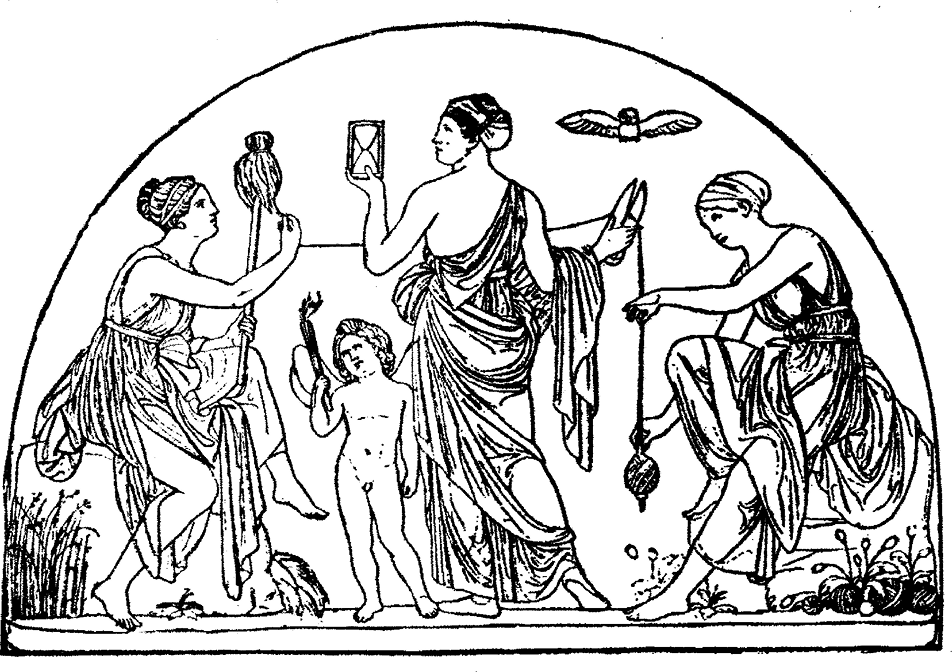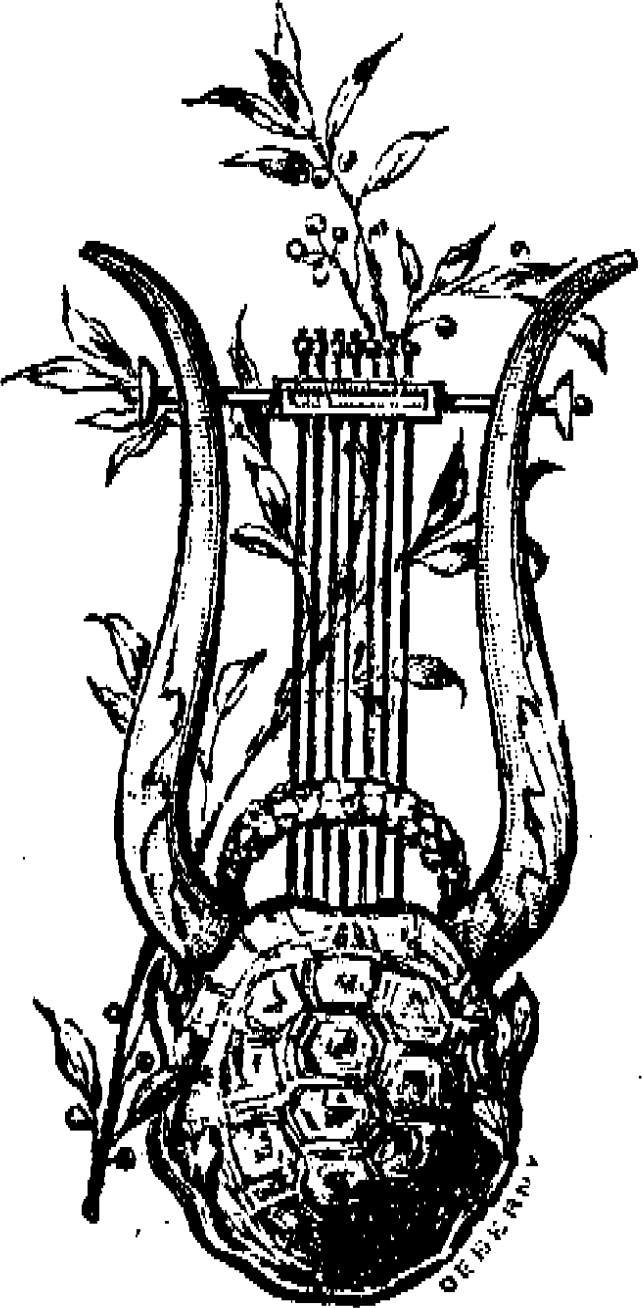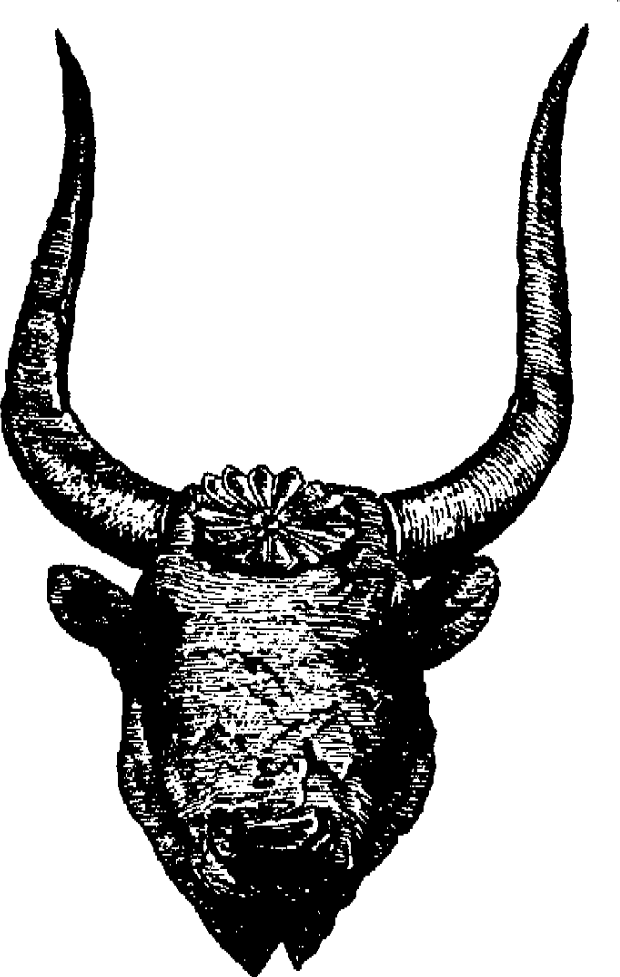
eBook - ePub
Earth's Daughters
Stories of Women in Classical Mythology
Betty Lies
This is a test
Buch teilen
- 208 Seiten
- English
- ePUB (handyfreundlich)
- Über iOS und Android verfügbar
eBook - ePub
Earth's Daughters
Stories of Women in Classical Mythology
Betty Lies
Angaben zum Buch
Buchvorschau
Inhaltsverzeichnis
Quellenangaben
Über dieses Buch
A "Who's Who" of women in classical mythology! The stories in this collection will not only satisfy the mythology lover and feminine scholar but make an outstanding curriculum supplement for humanities or literatures courses in elementary and high school. They are especially appropriate for courses emphasizing a returning emphasis on classical literature.
Häufig gestellte Fragen
Wie kann ich mein Abo kündigen?
Gehe einfach zum Kontobereich in den Einstellungen und klicke auf „Abo kündigen“ – ganz einfach. Nachdem du gekündigt hast, bleibt deine Mitgliedschaft für den verbleibenden Abozeitraum, den du bereits bezahlt hast, aktiv. Mehr Informationen hier.
(Wie) Kann ich Bücher herunterladen?
Derzeit stehen all unsere auf Mobilgeräte reagierenden ePub-Bücher zum Download über die App zur Verfügung. Die meisten unserer PDFs stehen ebenfalls zum Download bereit; wir arbeiten daran, auch die übrigen PDFs zum Download anzubieten, bei denen dies aktuell noch nicht möglich ist. Weitere Informationen hier.
Welcher Unterschied besteht bei den Preisen zwischen den Aboplänen?
Mit beiden Aboplänen erhältst du vollen Zugang zur Bibliothek und allen Funktionen von Perlego. Die einzigen Unterschiede bestehen im Preis und dem Abozeitraum: Mit dem Jahresabo sparst du auf 12 Monate gerechnet im Vergleich zum Monatsabo rund 30 %.
Was ist Perlego?
Wir sind ein Online-Abodienst für Lehrbücher, bei dem du für weniger als den Preis eines einzelnen Buches pro Monat Zugang zu einer ganzen Online-Bibliothek erhältst. Mit über 1 Million Büchern zu über 1.000 verschiedenen Themen haben wir bestimmt alles, was du brauchst! Weitere Informationen hier.
Unterstützt Perlego Text-zu-Sprache?
Achte auf das Symbol zum Vorlesen in deinem nächsten Buch, um zu sehen, ob du es dir auch anhören kannst. Bei diesem Tool wird dir Text laut vorgelesen, wobei der Text beim Vorlesen auch grafisch hervorgehoben wird. Du kannst das Vorlesen jederzeit anhalten, beschleunigen und verlangsamen. Weitere Informationen hier.
Ist Earth's Daughters als Online-PDF/ePub verfügbar?
Ja, du hast Zugang zu Earth's Daughters von Betty Lies im PDF- und/oder ePub-Format sowie zu anderen beliebten Büchern aus Scienze sociali & Folklore e mitologia. Aus unserem Katalog stehen dir über 1 Million Bücher zur Verfügung.
Information
Part 1
How Did
It All Begin?
Stories of the Creation
Gaia:
The Mother of Everything

First there was Chaos, a deep chasm in which nothing existed. Out of it rose Gaia, the broad-breasted Earth, mother of the immortals who occupy Mount Olympus. Then came Tartarus, hidden in a remote corner of the wide Earth, and after it, Eros—Love—the most beautiful of the immortal gods, who overcomes reason in gods and mortals alike. From Erebos, the realm of darkness, and Night, came Day and Bright Air.
Now, Earth gave birth to one who was equal to herself—starry Heaven—to surround her and make a home for the blessed gods. Next, she bore the long mountains, the beautiful haunts of the goddesses, the nymphs who live in the valleys and hillsides. And she bore the sea, the turbulent and undraining water, but also Oceanus, the great river that encircles the world, who came of her union with Heaven.
Also born of the marriage of Earth and Heaven were the Cyclopes and the three mighty giants with a hundred arms. The youngest child was Cronos, whose name means “time.”
Heaven loathed his own children. As soon as each of them was born, he hid them away in a cavern, and would not allow them to see light. He reveled in this wicked work, while Earth groaned and was sore at heart because of the father’s lack of love for her children.
She created adamant, a metal of great hardness, and made a huge sickle, a tool for reaping. Then she spoke to her children, saying, “We could make amends for your father and his cruel behavior. Who will help me?”
But they were afraid, and all the children remained silent—all except Cronos, who replied, “Mother, I will undertake this task. After all, our unspeakable father began it by his cruelty.”
That night, when Heaven came and covered Earth with night, Cronos leaped out from ambush, and struck at his father with the sickle. The blood of Heaven fell in great drops, and was received by Earth. From it grew the Furies and giants, and the tree nymphs. Aphrodite, the goddess of love, rose from the foam where her father’s wounds had touched the sea.
Heaven railed at his children and gave them the name of Titans. Later, there would be a great fight between the Titans and the gods, and the gods would be victorious.
But Gaia, Earth, was the mother of everything, gods and mortals alike.
This is the story Hesiod tells to explain the beginning of the world. There are other stories, as you will see.
In the Beginning

Before anything existed, there was Chaos, a shapeless nothingness. Out of Chaos rose Eurynome, the Goddess of All Things. When she had risen, naked and alone, she found there was no place for her to rest her feet. She divided the seas from the sky, but still she had no resting place. Eurynome began to dance upon the waves, moving toward the south, and her dancing created a wind that danced too, following behind her. This was something new, so Eurynome took the wind in her hands and rubbed it until it became the great serpent Ophion. The serpent curled itself around her and she became pregnant.
Now the goddess took on the form of a great dove and brooded over the waves. In time, she produced an enormous egg, the Universal Egg, which contained everything that was to come. At her request, the serpent Ophion coiled around it seven times to keep it warm until it hatched and split in two. From the egg tumbled out all the children of Eurynome: the sun, the moon, the planets, and stars. The last child was Earth with its wonderful features: mountains and valleys, rivers and streams, trees, plants, and all living creatures.
Eurynome and the serpent took up residence on Mount Olympus, until they quarreled. When he claimed that he, not she, had created everything, she banished him to a dark cave deep underground. Next the goddess created seven planetary powers, and set a Titan and Titaness to rule over each. Then she made the mortals. The first human was Pelasgus, who sprang from the soil of Arcadia. He became the ancestor of all mankind.
Well, that is a second version of creation, anyway. There is still another.

How the World Began
Before anything existed, there was Chaos, a shapeless nothingness. Its children were the black-winged goddess, Night, and Erebos, the place of death. Night, the all-powerful, was courted by the wind and laid a silver egg in the depths of darkness. When the egg hatched, Love emerged, golden-winged and shining, and began to create order and beauty. Love created light and day, then earth and sky.
The marriage of Mother Earth and Father Heaven—whose names were Gaia and Uranus—brought forth the first inhabitants, huge creatures with all the force of volcanoes, earthquakes, and hurricanes. The first three were giants with a hundred hands and fifty heads. The next three were the gigantic Cyclopes, each with one eye, huge as a wheel, set in the middle of his forehead. The last were the Titans, as large and powerful as their brothers, but not all violent or destructive. Some of them, in fact, were to be the benefactors of a new race: mankind, yet to be invented.
Uranus hated his children. As soon as the monstrous giants were born, he imprisoned them in caverns deep underground. Earth was furious, and she appealed to the other children, the Cyclopes and the Titans, to do something about this outrage. Cronos, the youngest Titan, was the only one of her children who had enough courage to help his mother. He fought Uranus, wounding him horribly. From the blood that spilled onto the ground sprang the giants and the Furies.
Cronos was now the sovereign of Heaven and Earth, ruling with his queen, his sister Rhea. They became the parents of the gods, but Cronos too was a jealous father. The dying Uranus had predicted that Cronos would suffer the same fate as he: that one of his sons would dethrone him. But Cronos thought he had figured out a way to prevent this. As each of his children was born, he swallowed them—first the three daughters, Hestia, Demeter, and Hera; then his sons, Hades and Poseidon.
Now it was Rhea’s turn to be enraged at the father of her children. When the youngest, named Zeus, was born, she did not let Cronos see him, but quickly gave him to Mother Earth to care for. Then she wrapped the infant’s swaddling clothes around a stone, and Cronos swallowed it, thinking that it was the baby.
When Zeus was grown to manhood, he determined to take vengeance on his father and rescue his siblings. Secretly he returned home to confer with his mother Rhea, who agreed to help him. She gave Cronos a drink that made him sick, and he began to throw up. First the stone came up, then each of Zeus’s older brothers and sisters, unhurt and grateful to their younger brother for their deliverance. Understandably displeased about their treatment by Cronos, they begged Zeus to lead them in a war against the Titans.
In the long struggle for possession of Heaven and Earth that followed, the Titans and gods fought fiercely. The Titans, led by Atlas, were huge and more powerful than the young gods. They seemed most likely to win. But Zeus enlisted the aid of his father’s siblings, the Cyclopes and the hundred–handed monsters, who held a mighty grudge against their brother Cronos.
The Cyclopes were...